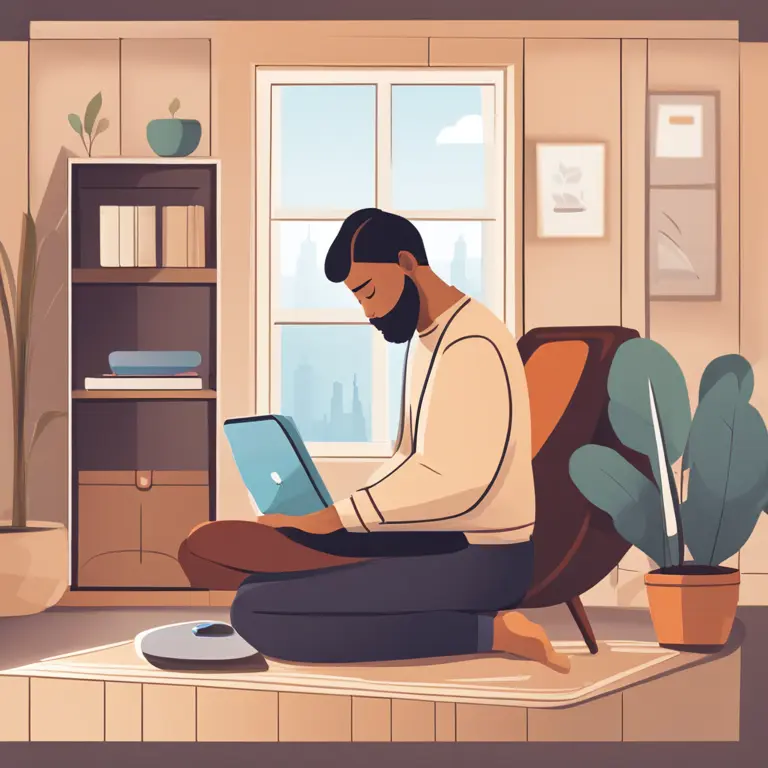
Meditation & Mindfulness as Allies Against Depression
Easing the Grip of Depression: How Meditation and Mindfulness Can Be Transformative Tools in Mental Health Management.
article by Hina Kurosawa
The Silent Epidemic of Depression
In recent years, depression has been characterized as a silent epidemic, a mental health challenge affecting millions worldwide. Despite the clinical advancements and a better understanding of its mechanisms, it persists as a complex condition that can profoundly impact an individual's quality of life. As of 2024, traditional treatments like medication and therapy continue to be the cornerstones of managing depression. However, the burgeoning fields of meditation and mindfulness offer complementary approaches that show promise in buffering against the pervasive symptoms of depression.

Meditation: A Pillar of Inner Peace
Meditation, an ancient practice with roots spanning various cultures, has garnered significant scientific interest. Its application as a therapeutic tool in mental health, specifically for depression, is backed by contemporary research. Regular meditation is associated with structural changes in the brain, including increased grey matter density and enhanced connectivity in areas related to emotion regulation. Such neural adaptations underpin improved resilience and a dampening of depressive symptoms when individuals engage in consistent meditation practices.

Mindfulness: Presence Over Preoccupation
Mindfulness, often intertwined with meditation, emphasizes the importance of being present and fully engaged with the current moment without judgment. This practice encourages individuals to step back from their thoughts and emotions, viewing them as transient states rather than immovable truths. For those grappling with depression, mindfulness can interrupt rumination cycles and foster a compassionate perspective towards oneself, which is crucial for healing and recovery.

Integrating Practices Into Daily Life
Effectiveness lies not only in understanding the benefits of meditation and mindfulness but also in their integration into daily life. Creating routine spaces for these practices can extend their therapeutic effects, contributing to sustained mood improvements and overall mental well-being. Accessibility to guided sessions through apps, online platforms, and community classes has made it easier than ever for individuals to explore these practices, regardless of their previous experience.

Supportive Science and Future Directions
The evidence supporting the efficacy of meditation and mindfulness in managing depression is continually growing. As we move further into the decade, an increasing number of healthcare professionals are recognizing the value and advocating for these practices to become an established part of the therapeutic landscape. Ongoing studies are also exploring how technological advancements, like virtual reality meditation, can further enhance the experience and outcomes for individuals with depression.
Embracing a Holistic Approach
Meditation and mindfulness do not offer an instant cure for depression. Instead, they provide valuable tools that can complement medical treatment and psychological therapies. Recognizing the interconnectedness of mind and body, these practices advocate for a holistic approach to mental health that can empower individuals to take an active role in their recovery journey. With consistency and dedication, meditation and mindfulness can shine as beacons of hope for many facing the darkness of depression.
Published: 1/18/2024
Modified: 1/18/2024
More predictions
Come back here soon to learn more about yourself and your future


Easing Pain With Mindfulness Meditation
Discover how meditation can be a powerful tool for pain management, offering natural relief and mind-body harmony.


Best Meditation Techniques for Brain Health
Discover effective meditation practices to enhance cognitive functions and maintain a healthy brain.


The Significance of Modern Meditation
Discover the crucial role meditation plays in fostering well-being, focus, and balance in today's fast-paced world.